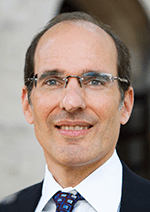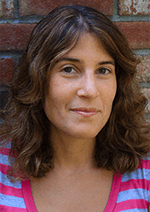By every measure, the United States and other parts of the world are experiencing an upsurge in anti-Semitism. There is, however, little consensus over its causes or its nature. Acclaimed historian David Nirenberg, in conversation with AJS member and U.S. historian Lila Corwin Berman, will reflect on how the long history of anti-Semitism may provide some guidance for understanding our current moment. From hate speech propagated on social media platforms such as Facebook to innuendos and dog whistles uttered by public officials to political and partisan calculations about what is and is not true anti-Semitism, Nirenberg will help survey today’s thorny landscape with an eye on the (sometimes very distant!) past, while asking what special responsibility historians and scholars might have to speak publicly in distressing times.

David Nirenberg is the Deborah R. and Edgar D. Jannotta Distinguished Service Professor of Social Thought and History at the University of Chicago, where he has also served as Dean of the Divinity School and of the Social Sciences Division. His work has focused on the ways in which Jewish, Christian, and Islamic cultures constitute themselves by interrelating with or thinking about each other. His first book, Communities of Violence: Persecution of Minorities in the Middle Ages, studied social interaction between the three groups within the context of Spain and France in order to understand the role of violence in shaping the possibilities for coexistence. In later work he has explored the work that “Judaism,” “Christianity,” and “Islam” do as figures in each other’s thought. His books include Judaism and Christian Art: Aesthetic Anxieties from the Catacombs to Colonialism (2011, jointly with Herb Kessler); Anti-Judaism: The Western Tradition (2013), Neighboring Faiths: Christianity, Islam, and Judaism Medieval and Modern (2014), and Aesthetic Theology and Its Enemies: Judaism in Christian Painting, Poetry, and Politics (2015). In collaboration with Ricardo Nirenberg he is completing a philosophical history of the various types of sameness that underpin the claims of different forms of knowledge (from poetry and dreams, to monotheism, math, and physics), exploring both the powers and the limits of the sciences and the humanities. He is currently working on a series of lectures on the relationship between episodes of religious conversion and the emergence of racial discourses, and launching a research initiative on the historical co-production of Christianity, Judaism, and Islam.

Lila Corwin Berman is professor of History at Temple University. She holds the Murray Friedman Chair of American Jewish History and directs the Feinstein Center for American Jewish History. She received her B.A. from Amherst College and her Ph.D. from Yale. Berman is author of a forthcoming book, titled The American Jewish Philanthropic Complex: The History of a Multi-Billion Dollar Institution (Princeton University Press). She is also author of Metropolitan Jews: Politics, Race, and Religion in Postwar Detroit (University of Chicago, 2015) and Speaking of Jews: Rabbis, Intellectuals, and the Creation of an American Public Identity (California, 2009). Her work has received support from the National Endowment of the Humanities and the American Council of Learned Societies, and her first book was a finalist for the Jewish Book Council’s Sami Rohr Prize. Her articles have appeared in the American Historical Review, Journal of American History, AJS Review, Jewish Social Studies, the Forward, the Washington Post, Religion and American Culture, and American Jewish History, as well as several edited volumes. She serves as the chair of the Academic Council of the American Jewish Historical Society and is a fellow of the American Academy of Jewish Research.